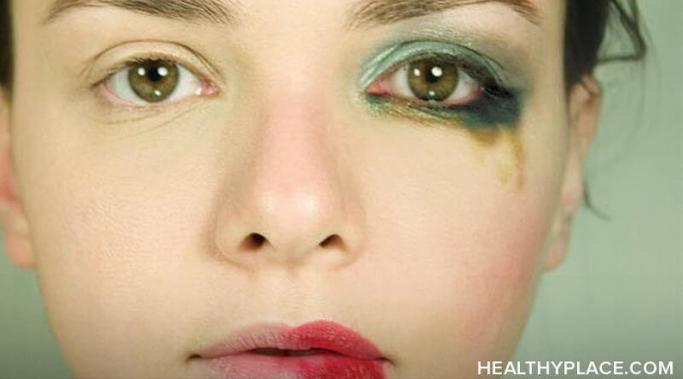Is it really possible to soothe borderline personality disorder (BPD) with your senses? As an emotionally sensitive person and someone with a diagnosis of borderline personality disorder, it is easy for my emotions to run wild. Only last week was I doubled over sobbing during a panic attack following a small mistake that I had made. My therapist has taught me how to use the senses to ground myself during such moments of panic, and overwhelming shame and sadness. Let me share some of the techniques I use with you. Before I begin, however, I want to acknowledge that not every sense will be available to every person or may need to be used in an individualized way.
More than Borderline
Dialectical behavior therapy (DBT) for borderline personality disorder has changed my life for the better.
Having a diagnosis of borderline personality disorder (BPD) can be really challenging at times. Not only is it tough having intense emotions, difficulties with self-criticism and near-constant fear of abandonment, but the condition is still shrouded in misunderstandings and misrepresentation. I have found it beneficial to remind myself of the following four things and wanted to share them in case they help you.
Being emotionally sensitive is like going through life with open wounds. Something that might go unfelt by someone who isn’t emotionally sensitive could be felt deeply by someone who is very sensitive to emotions. For me, being emotionally sensitive means that I experience a vast spectrum of emotions and often feel each one very intensely.
Recently I moved house and although only one element of my life changed, I feel like everything is different. Although I've only moved two miles away, I feel a million miles away from where I once lived. I am very sensitive to change and so it's taking me a while for my brain to understand that only one aspect of my life is different, rather than all facets of it. Due to my borderline personality disorder (BPD) and emotional sensitivity, I'm working extra hard at looking after myself throughout this transition period.
How can blogging help your mental health? Here's how it's helped mine.
This week I have been physically unwell while living with borderline personality disorder (BPD). I have a virus and it has really affected me emotionally. I have been low in energy and so have been unable to do my usual coping strategies. I have found that when I am physically ill, I feel really guilty for taking time off work and resting even though it is perfectly justified to do so.
Borderline personality disorder (BPD) is one of the most stigmatized mental health conditions, along with conditions such as schizophrenia, dissociative identity disorder and other personality disorders. I have been discriminated against by healthcare professionals, struggled for years to talk openly due to stereotyping and see few compassionate representations of the condition in the media. There are three main myths about BPD and I will outline them here.
I thought I would offer a snapshot of a day into my life with borderline personality disorder (BPD). This account is of a day when my BPD was neither calm nor at crisis level, but was moderate in strength. There is no such thing as a typical day in my life with borderline personality disorder due to the intense and quickly changing emotions associated with this condition.
Suicidal thoughts are a huge part of my life with borderline personality disorder. Even though I have them less frequently than I used to, they can still cause me a lot of distress. Here are my four tips for managing suicidal thoughts.









